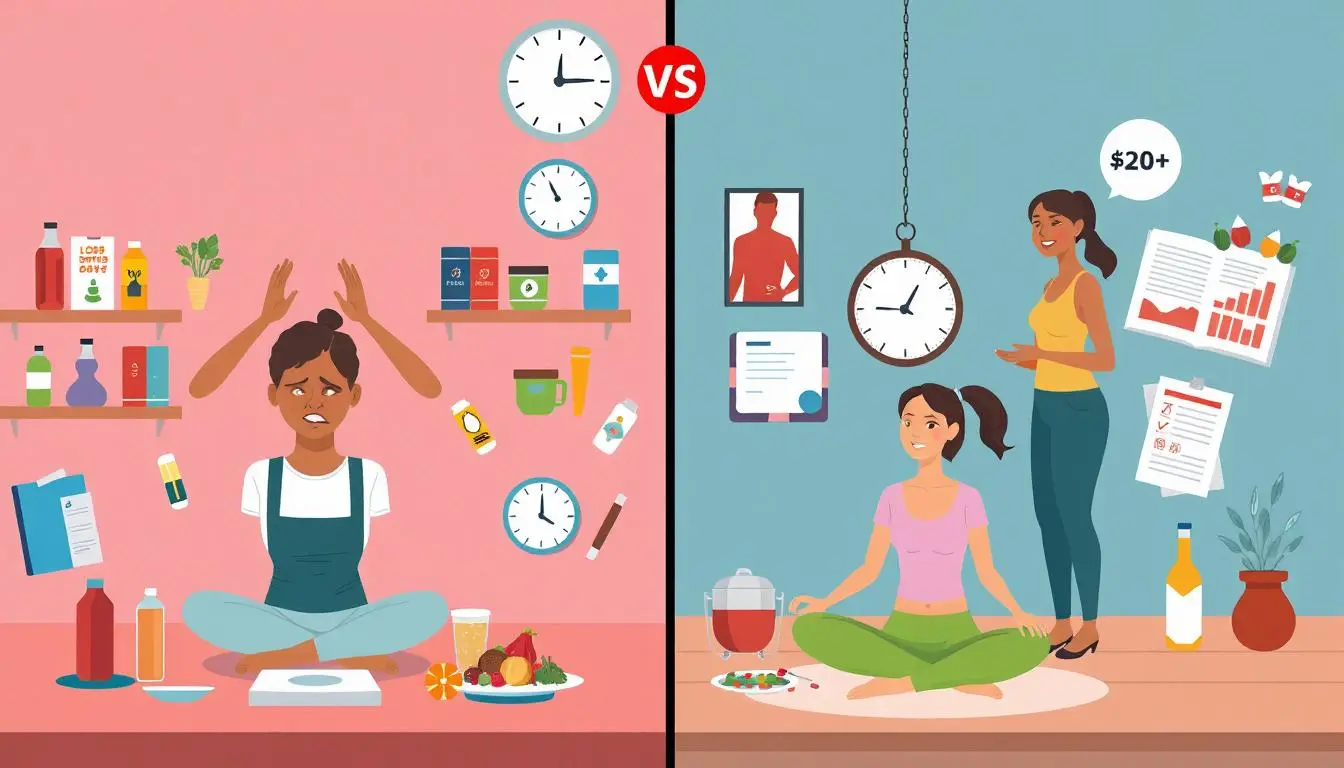Are you tired of hearing about the latest fad diets that promise quick fixes and dramatic results? Fad diets come and go, often leaving people feeling frustrated and overwhelmed. In this article, we will explore the world of fad diets, shedding light on their common types, deceptive marketing tactics, and potential health risks. It’s important to understand that sustainable lifestyle changes are key to long-term success when it comes to health and wellness. Instead of falling for the traps of fad diets, consider seeking professional guidance and focusing on making gradual, realistic changes to your eating habits and physical activity. Let’s dive into the world of fad diets and uncover the truth behind the hype!
Are you tired of hearing about the latest fad diets that promise quick results with little effort? Let’s break down some common types of fad diets and why they may not be the best choice for your long-term health.
Common Types of Fad Diets
From juice cleanses to cutting out entire food groups, fad diets come in all shapes and sizes. Some popular ones include:
- Keto Diet: A high-fat, low-carb diet that may lead to short-term weight loss but can be difficult to sustain.
- Juice Cleanse: Drinking only juice for a set period of time, which may result in nutrient deficiencies and muscle loss.
- Detox Diet: Promising to rid your body of toxins through restrictive eating, which is not backed by science.
While these diets may offer quick fixes, it’s important to remember that sustainable lifestyle changes are key for long-term success and overall well-being.
So you’re scrolling through social media and see an ad for the latest fad diet promising quick weight loss and incredible results. Before you jump on the bandwagon, let’s talk about deceptive marketing tactics used by these diets.
Deceptive Marketing Tactics
Many fad diets rely on flashy advertisements, celebrity endorsements, and before-and-after photos to lure in potential customers. They often make bold claims without scientific evidence to back them up, leaving you feeling pressured to try their program.
- Watch out for diets that promote extreme restrictions or promise unrealistic results in a short amount of time.
- Be cautious of products or supplements that claim to be a “magic solution” for weight loss.
- Remember, sustainable weight loss takes time and requires a balanced approach to diet and exercise.
Instead of falling for these misleading tactics, focus on making gradual and sustainable lifestyle changes that will benefit your overall health in the long run. Consult with a healthcare professional or registered dietitian for personalized advice tailored to your needs.
So, you’ve tried the latest fad diet and shed a few pounds quickly. But what happens after the initial excitement fades? Research shows that most fad diets fail to deliver long-term success. This can be frustrating, especially when you’re looking to make lasting changes in your health and well-being.
When it comes to weight loss and overall health, sustainability is key. Quick fixes may provide temporary results, but they often come at a cost. Rapid weight loss can lead to muscle loss, nutritional deficiencies, and a slowed metabolism.
Instead of falling for the allure of fad diets, focus on making sustainable lifestyle changes. Incorporate balanced meals, regular physical activity, and adequate rest into your routine. These habits will not only help you reach your goals but also support your long-term health and well-being.
Potential Health Risks
When it comes to fad diets, it’s crucial to be aware of the potential health risks they can pose. These diets often focus on extreme restrictions or eliminating entire food groups, which can lead to nutritional deficiencies and health complications. Rapid weight loss from fad diets can also result in muscle loss, weakened immune system, and hormonal imbalances.
It’s important to prioritize your health and well-being by choosing a balanced and sustainable approach to eating. Rather than falling for quick fixes that promise immediate results, consider making small, gradual changes to your diet and lifestyle. Remember, the key to long-term success is consistency and patience.
If you have concerns about your diet or weight loss goals, it’s always best to consult with a healthcare professional or a registered dietitian. They can provide personalized advice and help you create a plan that supports your overall health and wellness.
Are you tired of hopping from one fad diet to another, only to end up back where you started? It’s time to make a change for good! Instead of relying on quick fixes that promise unrealistic results, focus on sustainable lifestyle changes that will benefit your health in the long run.
By incorporating healthy eating habits, regular exercise, and proper self-care practices into your daily routine, you can achieve lasting results and improve your overall well-being. Remember, it’s not just about losing weight, but also about feeling confident, energetic, and strong.
Seeking professional guidance from a registered dietitian or nutritionist can help you create a personalized plan that fits your lifestyle and goals. They can offer valuable advice, support, and motivation to keep you on track towards a healthier you. Don’t fall for the allure of quick fixes – prioritize sustainable changes for a healthier future!
So, you’re thinking about embarking on a weight loss journey, but you’re not sure where to start? Seeking professional guidance is key to achieving your health goals in a safe and sustainable manner. Nutritionists, dietitians, and personal trainers are all qualified professionals who can provide personalized advice and support tailored to your specific needs and preferences.
By consulting with a professional, you can receive expert guidance on creating a balanced meal plan, incorporating regular exercise into your routine, and making realistic lifestyle changes that will help you achieve long-term success. They can also help you navigate through the overwhelming amount of information out there, ensuring that you make informed choices that align with your health goals.
Remember, it’s okay to ask for help – taking the step to seek professional guidance can make all the difference in your health journey. Don’t hesitate to reach out and start your journey towards a healthier and happier you!


